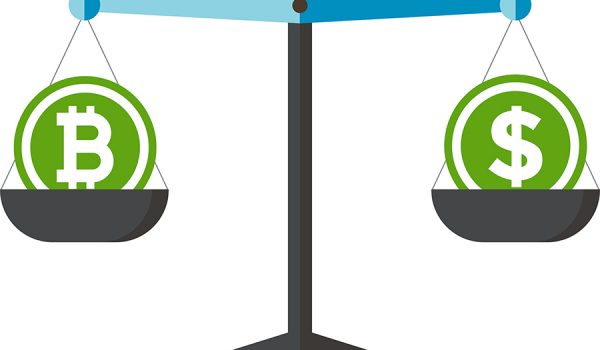How the IRS taxes cryptocurrency trades
The IRS treats cryptocurrencies as personal property, and therefore general tax principles around personal property apply. For most taxpayers, cryptocurrency will be treated as a capital asset and taxed similarly to a stock or bond investments. Just as with stocks, your purchase price for the cryptocurrency becomes your “cost basis” in the investment, and you are taxed on the amount of gain in excess of your cost basis. Similarly, if your sales price of a cryptocurrency investment is less than your cost basis, then you would generate a capital loss (which may be used to offset other capital gains).
These investments also receive preferential tax rates on long-term capital gains. For example, if you purchased Bitcoin on January 1, 2017 for $1,000 and sold it (more than one year later) on January 2, 2018 for $6,000, then you would have generated a gain of $5,000 to be taxed at your long-term capital gain rate (15% for most Americans). $1,000 would have been your cost basis of the property and reported on Schedule D of your federal tax return. Alternatively, if you held the Bitcoin for less than a year, then you would be taxed at your ordinary income tax rate (up to 37% for those in the top tax bracket).
The same rules apply for when you exchange your cryptocurrency for other cryptocurrencies or in exchange for goods and services. Let’s take the example of a trader who purchased 100 Bitcoins on January 1, 2018 and then traded them for 5,000 Ripple (another form of cryptocurrency) on June 1, 2018. Here, the trader will be liable for tax on the gain from the sale of his 100 Bitcoins based on their fair market value on the day they are exchanged for the Ripple. The trader’s cost basis in his Ripple investment would equal the fair market value of his investment in Ripple on that same day. The IRS will regard the sale of Bitcoin and purchase of Ripple as two separate transactions and not a “like-kind exchange” under Internal Revenue Code Section 1031.
Likewise, when cryptocurrency is used to purchase goods or services, it is deemed a sale of the cryptocurrency. Thus, taxes would be assessed on the fair market value of the cryptocurrency on the day that it is traded. As you can see, it becomes very important to document all transactions and find out the fair market value of your cryptocurrency at the time of any transaction (buy, sell, or exchange).
The pitfalls of mining and earning
Additional taxes apply to those who “mine” or generate their own cryptocurrency for personal benefit. First, any bitcoin that you earn from mining would be taxed as ordinary income based on the fair market value of the cryptocurrency on the date it is received. An additional 15.3% of self-employment tax would be imposed on any income that is earned from mining (plus a 0.9% additional Medicare tax is tacked onto annual income in excess of $128,400).
Similar to mining, cryptocurrencies may be received through various applications as compensation for activities. For example, users can earn Kin tokens through the mobile device application “Kinit” by completing tasks, such as filling out a survey or watching an advertisement. Receiving cryptocurrency through earning would be taxed as self-employment income. However, it should be noted that federal self-employment taxes only apply once an individual has annual net earnings of $400 or more. Any amount less than $400 in net income would not be taxable.
Additional reporting considerations
Depending on whether cryptocurrency exchanges and “wallets” are considered to be located outside of the U.S., there may be additional reporting requirements under federal law. The Foreign Account Tax Compliance Act (FATCA) is a federal law designed to reduce offshore tax evasion by establishing reporting requirements for individuals who hold money overseas. The threshold for FATCA reporting is met when an individual’s total value of foreign financial assets exceeds $50,000 on the last day of the tax year or more than $75,000 at any time during the tax year.
There may be further reporting required by filing Reports of Foreign Bank and Financial Accounts (FBAR). Any U.S. taxpayer must file an FBAR if he or she (i) has a financial interest in or has signature authority over at least one financial account located outside of the U.S. and (ii) the aggregate value of all foreign accounts exceeded $10,000 at any time during the tax year.
The IRS has not yet offered explicit guidance on the duty to report cryptocurrencies for purposes of FATCA or FBAR. This determination will largely depend on where the wallets are deemed to be held. Nevertheless, taxpayers with investment amounts higher than the FBAR and FATCA thresholds may wish to report their holdings as protection against potential future liability.
The IRS is paying attention
Investors should be particularly mindful of reporting cryptocurrency transactions, as the IRS is stepping up its enforcement efforts around the virtual exchanges. In November 2017, a Federal Court ordered Coinbase (a leading online trading platform) to provide investor details on all transactions involving more than the equivalent of $20,000. It is likely that this enforcement trend will continue, and the IRS will continue keeping a watchful eye on cryptocurrency transactions.
While this article provides a limited discussion of the general principles of cryptocurrency taxation, individual investors should be aware that the tax treatment of their investment may change under different circumstances. Investors should consult a tax advisor to determine their personal tax obligations on their cryptocurrency investments.
For more information regarding the federal tax consequences of cryptocurrency transactions, please contact Christopher T. Tassone, Matt Delaney, or any attorney in Frost Brown Todd’s Blockchain and Digital Currency team.

